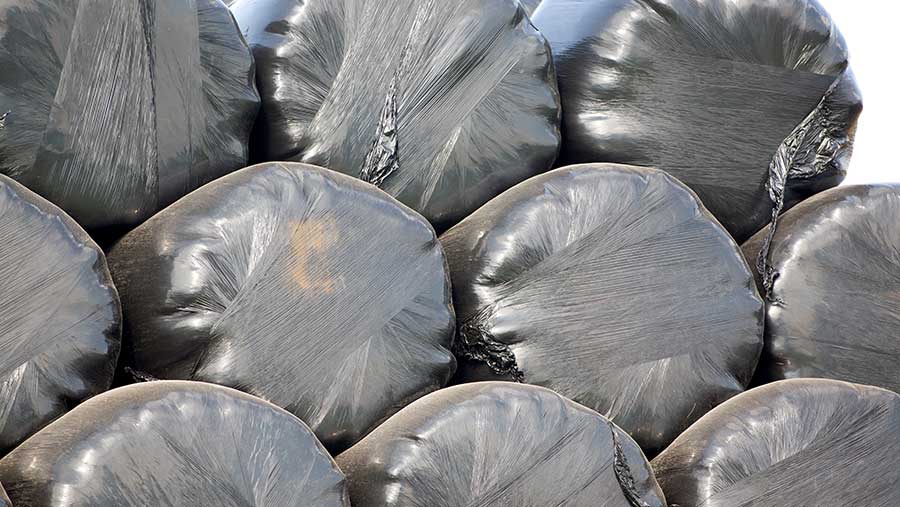Opinion: Investment needed to reduce waste plastic
 © Tim Scrivener
© Tim Scrivener The livestock industry desperately needs a statutory recycling scheme, underpinned by legislation, to cope with a rising tide of dirty agricultural waste plastic.
This would give the recycling industry confidence to invest in new plants, which could turn it into useful second-life products.
Twenty-four years ago, we opened the first farm waste plastic recycling factory in Dumfries – dedicated to recycling silage stretch film, silage pit sheeting, polytunnel and other crop covers.
See also: A guide to farm recycling – the options and costs
A voluntary scheme was set up, in which all new farm plastic manufacturers applied a levy to their products.
This went to a not-for-profit organisation to give all farmers, regardless of their location, a free plastic wrap collection service.
This worked well for two years, until some film suppliers decided to stop taking part.
Farmers have a legal responsibility to deal with their waste silage wrap ethically – they cannot bury or burn it.
The cost to have these materials collected varies according to location, but to send it to landfill costs £140/t.
To recycle it, farm plastic has to be shredded, washed and dried before being melted and formed into plastic pellets.
Ten years ago, an emerging overseas market for waste plastic opened up and collectors that had previously been supplying RPC bpi sent their raw material elsewhere.
To make up the loss, we secured a long-term supply from the Irish Farm Film Producers Group – Ireland’s only approved farm plastics recycling compliance scheme.
Irish farmers pay a 5-10% levy on every roll of film they buy and take their dirty silage sheets to 235 bring-centres, which are set up each year at markets, co-ops or county council recycling centres.
The collectors then bale the material before sending it to the recycling factory to be made into new products.
Eighteen months ago, the Chinese government banned the import of clean waste plastics.
They had never been importing dirty farm plastic, but had been taking 8-10m tonnes of general-purpose packaging from all over the world.
Importers in Vietnam, Malaysia and Thailand, which had been taking dirty farm plastic to recycle, decided to take the cleaner waste that had been going to China.
This essentially shut the UK’s export market down and has created a log-jam for plastic farm waste on UK farms.
RPC bpi continues to take UK and Irish waste plastics, but we are at our capacity at 40,000t of agricultural waste packaging a year, out of a total of 80,000t produced annually across the country.
The industry needs more recycling centres – but these cost £20m apiece and there is no incentive to invest.
That is why having a statutory scheme is critical. We almost achieved a scheme in 2007, but this fell at the last legislative hurdle, when prime minister Gordon Brown called a general election.
I believe it is something Defra should retrieve and re-energise. Having a statutory scheme similar to the one in Ireland would give all UK farmers a low-cost and efficient system, regardless of location.
I would urge all farmers to write to their MPs in support of such a scheme.
Mike Baxter is external affairs director, RPC bpi Group
